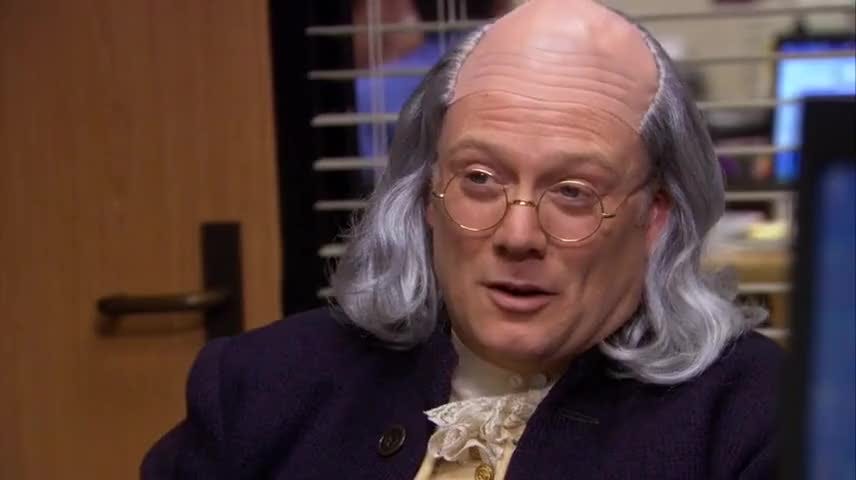Vol. 1 Issue 3: Law's Famous O-Word: Originalism
Originalism: it’s a theory of constitutional law. It’s also information so powerful that if you drop this knowledge at a party, literally no one will talk to you at the party. Or ever again.
What is Originalism?
Originalism is a way of interpreting the meaning of the constitution. Because lawyers have no hobbies, they will look at what the constitution meant when it was written in 1787, when wigs were sexy and syphilis was fashionable.
If originalism was a spice, it would be salt. It’s bland. It’s law for beginners, since there are only a few things from the 1780s that could be used to interpret the constitution: the intent of the founding fathers, the meaning of words in the before times, and documents written on tattered parchment paper that probably began with “Hear YE, Hear YE.” It’s also boring, since what little debate there is exists in the form of he-said-he-said between two likely slave-owning rich white men, dressed in monocles and frilly shirts that only Jerry Seinfeld could pull off. And the result? Law that reads as though it’s the 1700s.
People Don’t Actually Believe in This Nonsense, Right?
Of course they do. Antonin Scalia practically looked like he lived in the 1700s. But there are real—and insane—implications of this nonsense in real life.
Take the example of the Eighth Amendment, which prevents “cruel and unusual punishment.” In the 1700s, enslaved people were whipped and abused in a manner that was likely not considered cruel or unusual, considering that slavery was legal. Boiling, burning at the stake, hanging, beheading, and drawing and quartering were chosen forms of execution around that time. And men were often required to wear pants so tight, even emo teenagers today are embarrassed.
In today’s day and age, all these things—whipping as punishment, beheadings, slavery, and excessively tight pants—are considered cruel and unusual, so much so that they are now considered unconstitutional (except for the pants, which are more of a fashion crime). This is because what is considered “cruel and unusual” today was not considered cruel and unusual back in the heady days of dysentery, and the founding fathers themselves understood that—so much so that they suggested how we define “cruel and unusual” should change with the time. Our monocled forefathers themselves may not have been onboard with originalism.
And originalism makes little sense today. The founders probably had no idea what a computer was, or what how much porn flows through the veins of YouBook and FaceTube. They would probably sentence neurosurgeons to death for practicing witchcraft. They also would probably pop their monocles if they saw that women are allowed to wear pants and Black people are allowed to be President. So it doesn’t make sense that their views are the most important thing in constructing the law.
Is There Something Less Insane on the Menu?
All of this is irrelevant if we don’t have an alternative. Progressives suggest a mode of interpretation called “living constitutionalism.” That doesn’t mean progressives are trying to animate the constitution so that one of you can fornicate with it. It simply means that the meaning of the constitution changes with time. This means that, crazily, we could use the current meaning of words and our social context to interpret the constitution. This would make sense, as we currently do not live in the 1700s.
But living constitutionalism can be subjective. Our morals today are varied: there are normal people, who like New York-style pizza, and psychopaths, who like pineapple on pizza. So that means living constitutionalism can be somewhat arbitrary, or something to argue about in courts or over the dinner table. But justices are creative, and if their stacks of Harvard and Yale degrees suggest anything, it is that they can come up with a structured way to reduce the arbitrariness of how to interpret the constitution.
While progressive lawyers are figuring out how to do that, originalists should truly abide by their principles. If they believe in originalism, they should live as the originalists did. Running water is so 1900s. The internet is so 2000s. But gonorrhea? That’s so 1780s.





![Judge Neil Gorsuch Originalism Intensifies | [Intensifies] | Know Your Meme Judge Neil Gorsuch Originalism Intensifies | [Intensifies] | Know Your Meme](https://substackcdn.com/image/fetch/$s_!TrPz!,w_1456,c_limit,f_auto,q_auto:good,fl_progressive:steep/https%3A%2F%2Fbucketeer-e05bbc84-baa3-437e-9518-adb32be77984.s3.amazonaws.com%2Fpublic%2Fimages%2Fa7a79ffa-1f5b-4eba-b3f1-422560ff1a89_3000x2250.jpeg)

